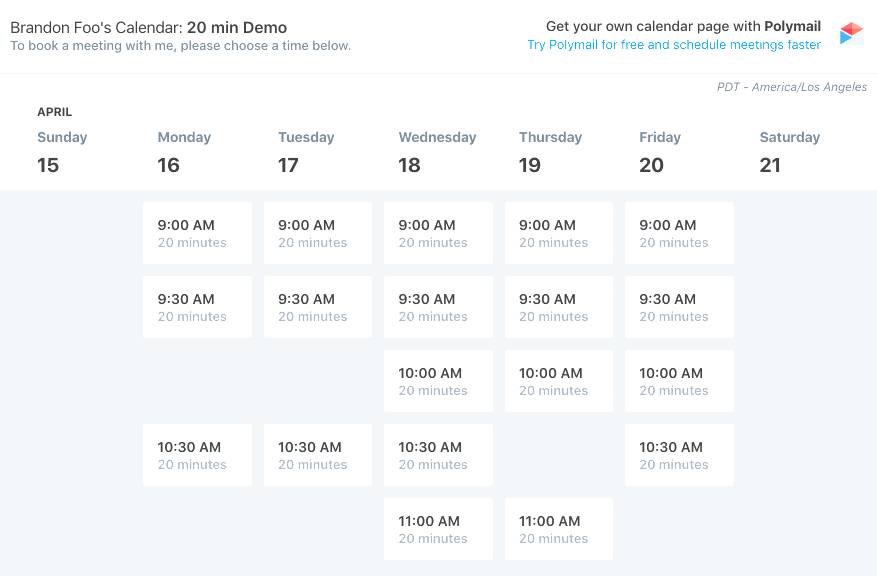

Your solution doesn’t matter unless it is a shared user pain point. To avoid this, you should be validating your development by sharing prototypes.īefore developing a more complete version of your product, you need to confirm that you are actually solving the right problem. But what happens when you launch, and your product goes flop? You are back to square one, or maybe negative one since you have probably burned through your runway.
#Polymail founder full
You can spend time and energy to rapidly build a feature full product. Build a community of users to help you develop it. Share Prototypes to Validate Your Ideasĭon’t just build a product. By doing so they have become a staple tool in the workflows of their 25,000 strong user community. In an exclusive interview with Codementor, Brandon revealed how Polymail has incorporated user feedback at every step of the product development lifecycle. At all stages throughout the product lifecycle it’s important to continuously validate what you plan to build next, making sure that your perspective is aligned with the actual market needs, and what users are actually looking to do, and the problems they are actually having. It’s important to always be in a constant learning process. Borrowing Lean Methodologies of (build ⟶ measure ⟶ learn), Brandon and his team have made customer development central to product engineering and management: Today Polymail has grown to more than 25,000 active users.

With 700k in seed funding, Brandon and his Co-founders, Brandon Shin, and Shahan Khan used prototyping, customer feedback, and iteration to build a loyal user base early on. Polymail, a YC Alum, is a tool designed for businesses to use email more efficiently for customer interactions, tracking communications, and internal messaging.

#Polymail founder software
This dynamic was not lost on Polymail CEO and Co-founder Brandon Foo, who has adopted Lean Startup methodology for the software development cycle of his collaborative email tool. It requires a business to listen to what potential customers actually want, and build it through incremental, validated development. Creating a product that people will find valuable requires more than just a founder’s intuition.
#Polymail founder series
As pointed out by Steve Blank, renowned author, business advisor, and academic, too often founders assume that consumers will “get,” like, or need their product.īut developing a new product, potentially in a new market, startups are essentially operating on a series of unknowns that they can only hypothesize about.Īccording to the Lean Startup Movement popularized by Blank and his former student Eric Ries, startups should not execute a business model, but rather continually search for and optimize one. Failure to validate hypotheses explains why 75 percent of all startups go bust.


 0 kommentar(er)
0 kommentar(er)
